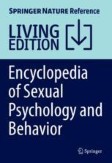Search
Search Results
-
Knowing Your Child’s Mind and Its Relationship with Theory of Mind Acquisition
Research suggests that parental reflective functioning (PRF)—that is, the parent’s capacity to envision the mind of the child—is a key factor in...

-
Theory of Mind and Social Informant Discrepancy in Autism
When autistic youth are asked to assess their own social skills, they frequently rate themselves more favorably than their parents rate them. The...

-
Theory of Mind
This chapter provides an overview of the construct of theory of mind (ToM) and the common tasks used to index ToM understanding from early childhood...
-

-
Comparing data quality from an online and in-person lab sample on dynamic theory of mind tasks
Nearly half the published research in psychology is conducted with online samples, but the preponderance of these studies rely primarily on...

-
Introducing tomsup: Theory of mind simulations using Python
Theory of mind (ToM) is considered crucial for understanding social-cognitive abilities and impairments. However, verbal theories of the mechanisms...

-
The longitudinal relations between mental state talk and theory of mind
BackgroundPrevious investigations of associations between children’s Theory of Mind (ToM) and parents’ use of words relating to mental states (or...

-
Theory of Mind
The theory of mind (ToM) refers to how people understand their own thoughts and feelings and those of other beings. It is a crucial cognitive...
-
Assessing Theory of Mind in Children: A Tablet-Based Adaptation of a Classic Picture Sequencing Task
Correctly assessing children’s theory of mind (TOM) is essential to clinical practice. Yet, most tasks heavily rely on language, which is an obstacle...

-
Uniting Contemplative Theory and Scientific Investigation: Toward a Comprehensive Model of the Mind
ObjectivesResearch into meditation-related emergent phenomenology is advancing, yet progress is hampered by significant incongruities between...
-

-
The “Creativity Crisis” as a Mind in Crisis: A Cultural-Historical Activity Theory Position
Creativity is considered a global ability and crucial for ordinary-daily and special (e.g., science, aesthetic) activities. In this paper, from the...
-
Foundations of theory of mind and its development in early childhood
Theory of mind is the human conceptual capacity to understand other people as agents who have subjective mental states such as beliefs, desires, and...

-
Theory of mind in mild cognitive impairment and Parkinson’s disease: The role of memory impairment
BackgroundSocial cognition is impaired in Parkinson’s disease (PD). Whether social cognitive impairment (iSC) is a by-product of the underlying...

-
Profiles of different domains of the theory of mind among rural preschoolers
Understanding others’ thoughts and feelings is a social-cognitive capacity known as the theory of mind (ToM). Previous studies have attempted to...

-
The relationship between theory of mind and moral sensitivity among Chinese preschool children: the mediating role of empathy
BackgroundIdentifying moral behavior in complex situations is the key ability for children to develop prosocial behavior. The theory of mind (ToM)...

-
Theory of mind, empathy, and prosocial behavior in children and adolescent: a meta-analysis
Theory of mind (ToM) and empathy are two major influencers of prosocial behavior (PsB). Some scholars hold that children with advanced ToM and high...

-
Autistic and Non-autistic Children’s Pain Perception is Modulated by Their First-Hand Pain Sensitivity and Theory of Mind
The current study examined whether autistic children’s perception of others’ pain could be modulated by their first-hand pain sensitivity and theory...

-
Kee** Children in Mind: Mentalizing Capacities of Caregivers and Educators and the Development of Theory of Mind in Preschool Children
A total of 137 Chilean preschool-aged children were evaluated with respect to theory of mind (ToM), and their respective primary caregivers and...

-
The Role of Parental Reflective Functioning for Theory of Mind Development in Internationally Adopted Children
In biological families, parental reflective functioning (PRF), or the parents’ capacity to envision their child as being motivated by internal mental...

